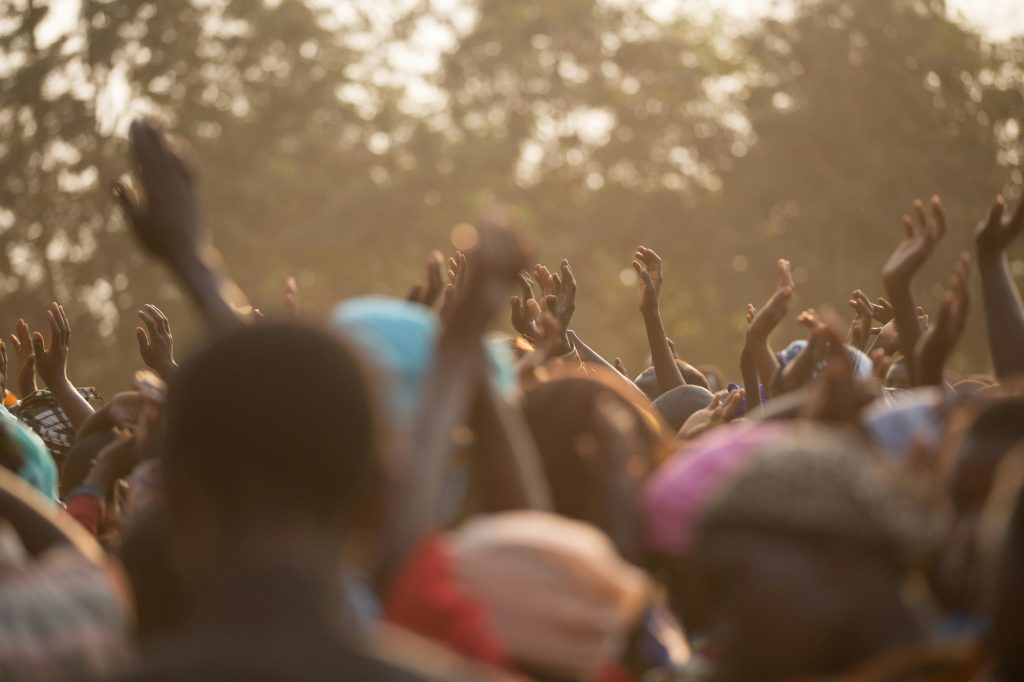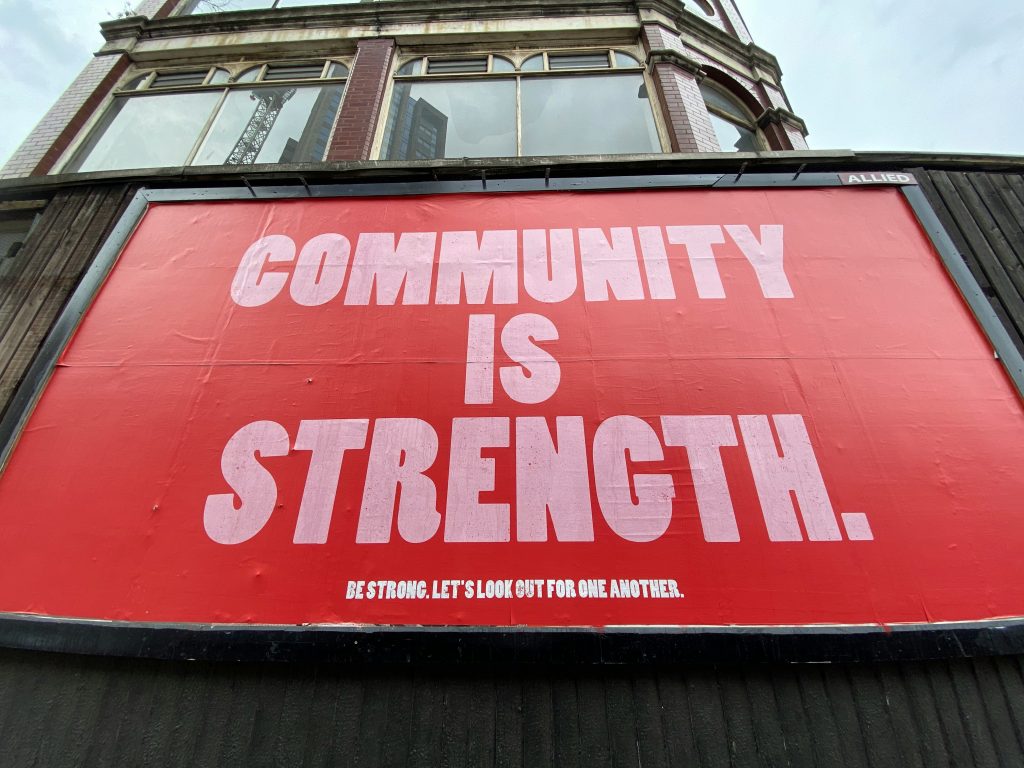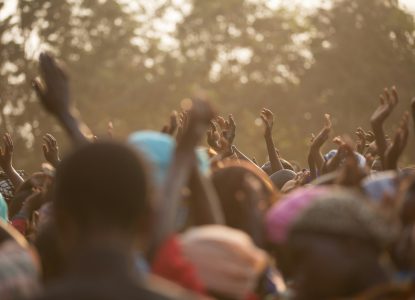By JoAnne Wadsworth, Communications Consultant, G20 Interfaith Forum.
– – –
On July 31st, 2025, the G20 Interfaith Forum, in partnership with Praeveni Global, hosted a webinar on “Faith Leadership and Missions” as part of a monthly series commemorating the 25th anniversary of the Palermo Protocol. The panel explored how faith-based organizations are adapting their approaches to combat modern slavery in an increasingly complex global landscape. The discussion was moderated by Duncan Jepson, Director of Strategy and Operations at Praeveni Global.
The panel featured Bishop Alastair Redfern, who currently serves as chair of the Clurr initiative and works internationally in the fight against modern slavery through the Global Sustainability Network and the Anglican Alliance. As a member of the House of Lords, he was instrumental in helping craft the UK Modern Slavery Act and national responses to this crime. David R. Shedd served with the United States Government for nearly 33 years in the Intelligence and National Security communities and now serves on the boards of two NGOs—Justice and Mercy International, which takes him to the Brazilian Amazon on a regular basis, and Faith-Based Training Leaders International. Felicitas Onetti has a background in social work and serves as the Anti-trafficking Education and Outreach Coordinator for the Migration and Refugee Services Department at the United States Conference of Catholic Bishops.
The Evolution of Faith-Based Responses
The panelists emphasized how dramatically the landscape of both missionary work and modern slavery has changed. Bishop Redfern outlined five factors creating a “perfect storm” that enables modern slavery: increasing vulnerable populations, sophisticated criminal networks, consumer demand for cheap goods, changing work patterns that make exploitation harder to detect, and what Pope Francis calls “the globalization of indifference.”
“Historic slavery was in your face. You could go into the marketplace and buy someone. It was very public. Now it’s hidden, it’s out of sight. And so the faith response has to be noticing the people nobody else is noticing.” —Bishop Alastair Redfern
The traditional model of structured, long-term missionary assignments has given way to more flexible but potentially less sustainable approaches. David Shedd contrasted his parents’ generation of missionaries, who committed to five-year minimum assignments abroad, with today’s more transient mission work where participants might spend only weeks or months in communities.

The Critical Importance of Long-Term Commitment
All panelists stressed that effective anti-trafficking work requires sustained, multi-year commitments to specific communities. Shedd described his organization’s 14-year presence in the Amazon region, which revealed unexpected root causes of trafficking.
“Incest is at the center of the trafficking problem in the Amazon region. From these villages into the major cities of Brazil. It’s a domestic trafficking issue as opposed to external.” —David R. Shedd
This discovery fundamentally changed their approach, requiring faith groups to unite around addressing family-level trauma with village leaders. Such insights only emerge through sustained presence and trust-building over years.
Felicitas Onetti highlighted the expertise that comes from long-term community presence, noting religious sisters who have maintained consistent outreach in Baltimore for thirty years, becoming trusted resources that vulnerable populations know they can approach.
Working with Local Systems and Authorities
The discussion revealed how effective faith-based anti-trafficking work must engage with governmental and legal structures. Shedd’s work in Moldova exemplifies this approach, where his organization collaborates with local authorities to address the vulnerability of aging-out orphans.
The panelists emphasized that understanding local legal frameworks becomes essential for prevention. In Moldova, working with authorities to provide job training and support for 18-year-olds transitioning out of orphanages helps prevent their recruitment into trafficking networks.
“The greatest opportunity and the greatest reward that I have seen in addressing these issues is bringing hope.” —David R. Shedd
Consumer Power and Systemic Change
Bishop Redfern and the panel highlighted the crucial role of consumer activism in combating modern slavery. Even excellent legislation like the UK Modern Slavery Act requires citizen engagement to be effective.
“The power of citizens and consumers is enormous.” —Bishop Alastair Redfern
The panelists described how churches can mobilize people to write to companies about supply chain practices and to political candidates about prioritizing modern slavery issues. Onetti detailed the Catholic Church’s “Labeling for Lent” campaign, which educates parishioners about forced labor in seafood supply chains during the Lenten season when Catholics consume more fish.

Prevention Through Community-Centered Approaches
The discussion emphasized prevention over intervention, particularly through education and community strengthening. Onetti described work with native Hawaiian communities that focuses on early education and working with elders to address root causes rather than building more shelters.
“It’s not the same, doing a cleanup of the pollution in your garden and working with victims.” —Felicitas Onetti
This quote captures the complexity and specialized nature of anti-trafficking work, which requires professional training and trauma-informed approaches that well-meaning volunteers may not possess.
Overcoming Faith-Based Stigma
The panel addressed how faith communities sometimes face skepticism from secular anti-trafficking organizations. Onetti shared a powerful story from her work with the Mohawk community, where a law enforcement officer realized she had never referred trafficking survivors to faith-based resources due to her own negative experiences with churches.
“Our faith is what brings that solidarity and pathways to healing.” —Felicitas Onetti
Practical Actions
The webinar provided concrete examples of effective faith-based anti-trafficking work:
Consumer Advocacy: The Catholic Church’s “Labeling for Lent” program teaches parishioners to check seafood packaging for country of origin and contact companies about supply chain practices. When Indian shrimp was identified as tainted by forced labor, the campaign successfully encouraged consumers to choose alternative products.
Political Engagement: Faith communities actively write to political candidates during election cycles, keeping modern slavery on political agendas and supporting legislative measures.
Law Enforcement Partnerships: Churches build direct relationships with local trafficking units and victim coordinators in police departments, creating referral networks and improving community responses.
Long-Term Community Presence: Religious sisters maintaining 30-year presences in vulnerable communities like Baltimore, providing consistent outreach and becoming known, trusted resources for those needing help.
Institutional Prevention: Working with orphanages and local authorities in Moldova to provide job training and support for youth aging out of care, preventing their vulnerability to trafficking networks.
Education and Awareness: Utilizing church networks to educate communities about modern slavery indicators and prevention, particularly in indigenous communities where cultural sensitivity is essential.
The webinar demonstrated that faith-based organizations bring unique advantages to anti-trafficking work: long-term commitment to communities, extensive networks for education and advocacy, and deep relationships that enable both prevention and survivor support. Rather than simply providing humanitarian aid, these organizations are increasingly focused on systemic change through consumer activism, political engagement, and community-level prevention strategies.
– – –
JoAnne Wadsworth is a Communications Consultant for the G20 Interfaith Forum Association and Editor of the Viewpoints Blog.


